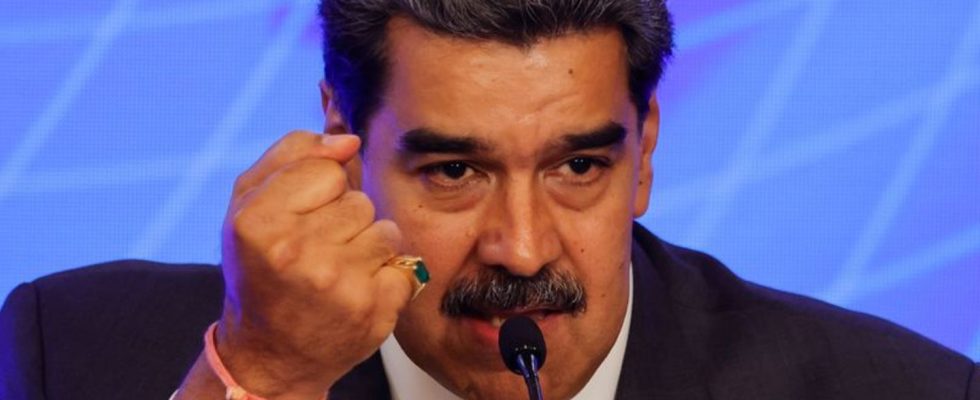Conflicts
Border dispute: Venezuela’s Maduro orders military exercise
Venezuelan President Nicolas Maduro orders a military exercise. photo
© Jesus Vargas/dpa
At a recent crisis meeting between the presidents of Venezuela and Guyana, it was agreed not to resort to violence in the region’s border dispute. Now Venezuela is threatening a military exercise.
More than 5,600 members of the armed forces were to hold a “defensive” exercise off the country’s east coast near the border with Guyana, Maduro said in a televised address. The exercise was a response “to the United Kingdom’s provocation and threat against the peace and sovereignty of our country,” Maduro said.
Background of the conflict
The background is a dispute over the Essequibo region in western Guyana. Venezuela has long laid claim to the resource-rich area, which covers about two-thirds of its neighboring country. On December 3rd, Maduro held a controversial referendum in Venezuela in which, according to official information, 96 percent of participants were in favor of joining “Guyana Esequiba” as a Venezuelan federal state. This raised fears that Venezuela could invade the region and trigger a war.
According to British media, Great Britain has sent a warship to Guyana in recent days as a sign of support for the Commonwealth state. The Royal Navy patrol ship HMS Trent will visit regional ally and Commonwealth partner Guyana, it said, citing the British Ministry of Defense. The Venezuelan Foreign Ministry on Thursday described the ship as a “threat” to the peace and stability of the region.
Crisis discussion two weeks ago
Just two weeks ago, the presidents of Venezuela and Guyana met for crisis talks and agreed to refrain from violence. Any controversy surrounding territory claimed by Venezuela in Guyana should be resolved in accordance with international law, including a 1966 agreement with the United Kingdom on the then colony of British Guiana, the joint statement said.
The current boundaries were established in 1899 in an arbitration award from a tribunal in Paris, initiated by the USA and Great Britain. Venezuela relies on an agreement with the United Kingdom from 1966 – a few months before the then colony of British Guiana became independent. This provided for a negotiated solution to the dispute. The International Court of Justice (ICJ) is considering the case at Guyana’s request, but Venezuela rejects its jurisdiction.
Immense oil deposits were discovered off Guyana’s coast in 2015. This has now given the English-speaking country – previously one of the poorest in South America – the greatest economic growth in the world.

